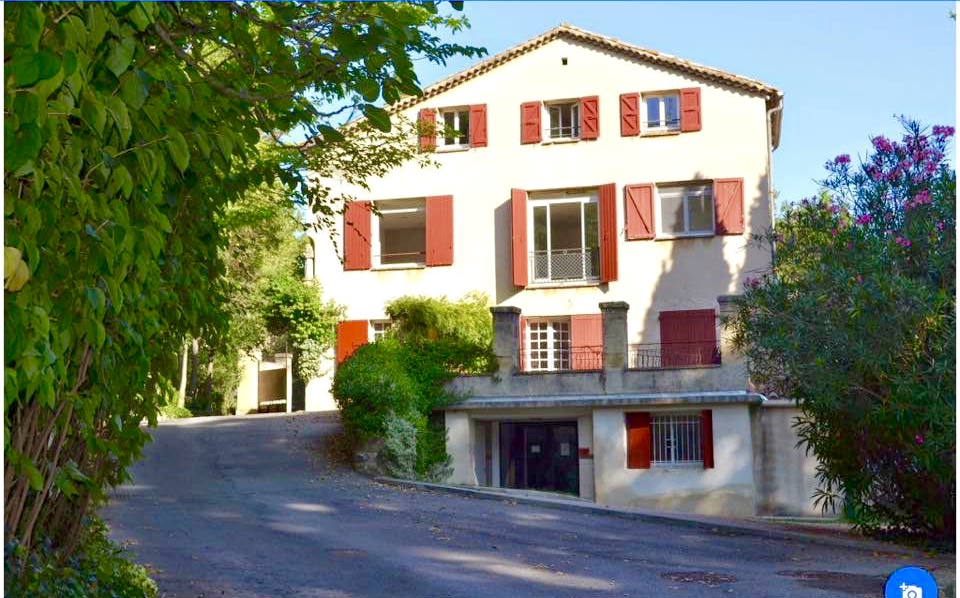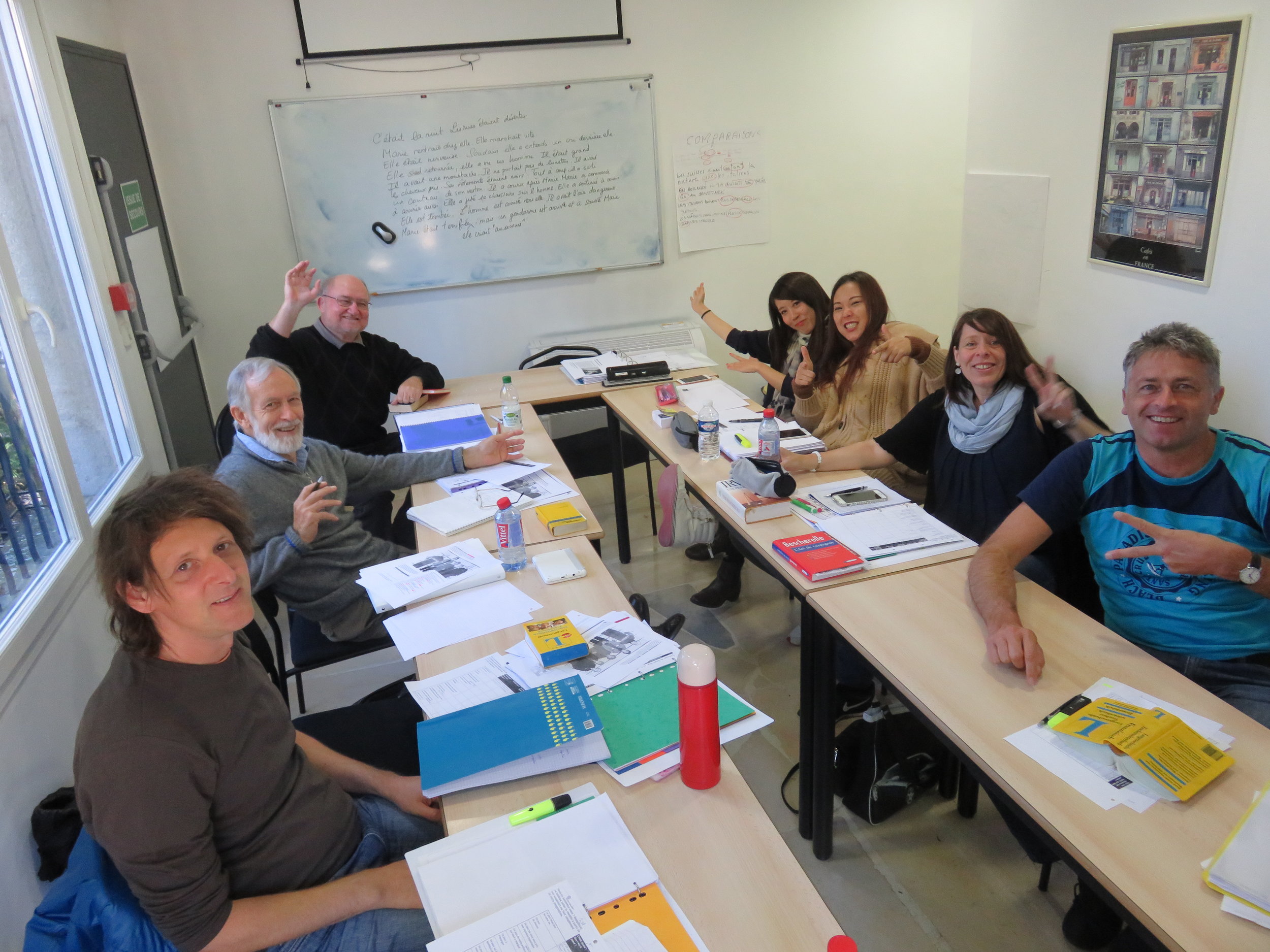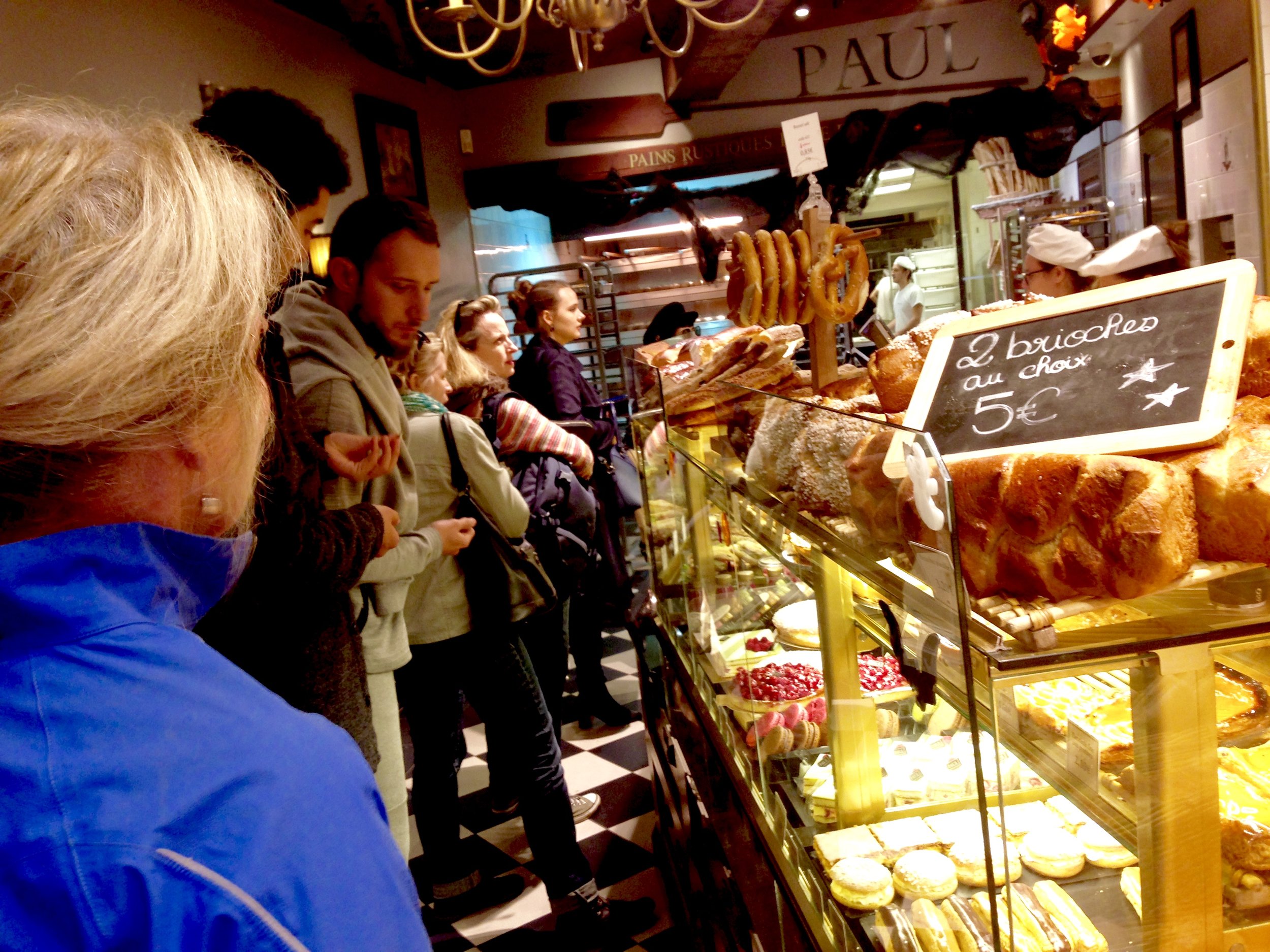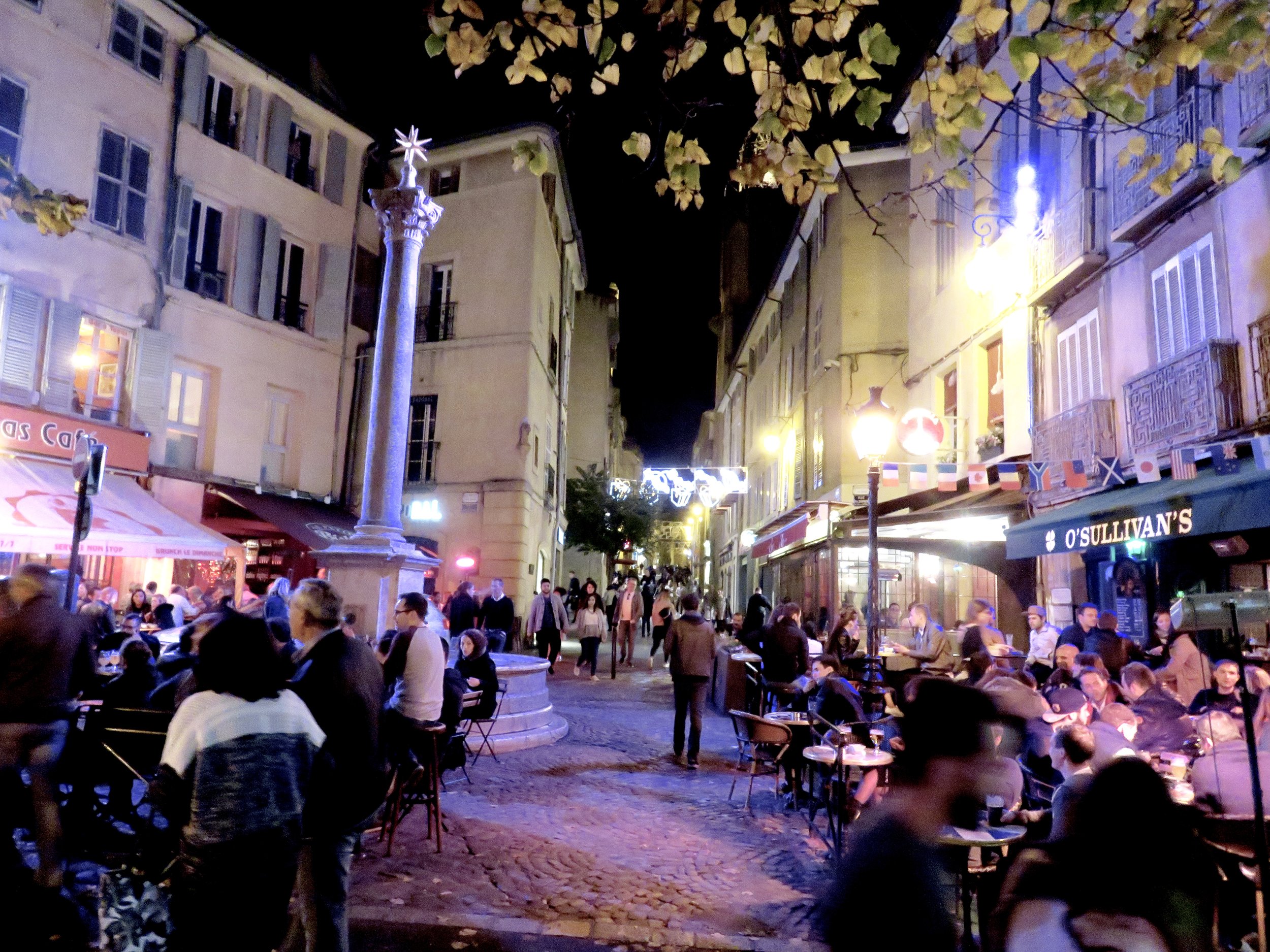“Nous voudrions une bouteille du Château Virant Rosé, s'il vous plaît …” We were dining in a wonderful little bistro in the medieval heart of Aix-en-Provence in Southern France and I had assumed the responsibility of ordering our wine.
In my mind, I’d asked for a lovely bottle of French rosé from a winery we had recently visited to do some tasting. Just saying the words made me feel chic, sophisticated, très français and smug about my language skills. My accent, intonation, vocabulary and grammar were all near-perfect…okay, maybe not quite that good - but certainly passable!
When I’d finished my spiel, Monsieur (our handsome French server) smiled indulgently and immediately broke into English. Dammit…the “Classic Language Switch”! How could he tell I wasn’t a native speaker?
I guess, it could have been worse. If he actually believed I was fluent, my request could have triggered a torrent of rapid-fire French that blurred together - the sound of one word seamlessly flowing into the next - until it was pas possible (at least for moi), to tell where one word ended and another began. When my deer-in-headlights demeanour made my bewilderment obvious, then he could have repeated the same thing, only thirty decibels louder. When language is a barrier to communication, it seems the speaker always assumes it helps to increase the volume.
When a storm of alien language zips by me like that, pleasing to the ear but impossible to tease apart, my brain freezes and my tongue follows suit. Quelle horreur! Anyone who knows me will attest, I love to talk…a lot. Lively conversation is one of my favorite pastimes. Don’t get me wrong I can get haltingly by, but to have a more substantive interaction with a native speaker was beyond my current “I cake bake” style of French. To rectify this unacceptable situation, I decided to enroll in IS Aix-en-Provence, an international language school.
Don, a French virgin, wanted to join me. While passable in Spanish, Don’s grasp of French was limited to “bonjour” and “merci” (with a Hispanic accent). This created a problem, as IS was not accepting beginners. We had one week before classes were to commence to cram for the first day when we would be given a written exam and a personal interview in order for the professors to place us in appropriate classes (or in Don’s case, to potentially displace him - right out of school).
We retained tutors and I taught him some rudimentary phrases I knew would come in handy in his oral evaluation. “My name is Don. I live in Canada. I have two children, etc…” It worked like a charm. Don was able to impress with a delightful menage à trois of Spanish, French and English and was admitted into the first level.
The initial week was mind boggling! Conjugated verbs, genders, liaisons, negations, articles and tenses (OMG…way too many tenses), learning a new language properly is très difficile. I swear new pathways were being forged daily, I could physically feel the increase in neuronal activity in my poor brain. It’s only fair I should be protected against Alzheimer’s and other dementias forevermore!
The international students, never more than ten per class, were of all ages and occupations. Finland, Czechoslovakia, Germany, Japan, China, New Zealand and Switzerland were all represented and that was just in my class alone It made for a fascinating learning environment.
Only French was spoken. If a person was lost, the prof continued to rephrase the explanation – never breaking into English - until clarity surfaced (or a fellow student finally took pity on the poor, confused soul). Professors rotated daily, so we wouldn’t become accustomed to a single accent.
Classes went from 9:00 to 12:30, but keeners could continue through the afternoon - although mornings alone were exhausting enough, merci! We got homework almost daily and, not doing it, made school the next day a scary proposition. Daydreaming in class also was not a bonne idée. When one lost track of the class conversation, re-entry wasn’t always easy.
Every week each of us had to make a 15-minute presentation (oui, in French) then field questions from the teacher and other students. Fellow Canadians, I did you proud with my talk on “Traditions of Canada” – think: beavers, hockey, Ground Hog Day, maple syrup, the RCMP and igloos (no… we don’t all live in them). I was thrown off my game a bit when asked how we differ from Americans. Hmmm…how did one explain in French simple enough for me to say and my classmates to understand? Pas de problème! “Donald Trump”…with a French accent, of course!
After class and on the weekends, the school organized optional activities (hikes, excursions, pétanque - a form of bocce) …all in French. I took a class with some fellow students at a downtown culinary school and learned all about the art of cooking duck. Don’t ask how many calories and grams of fat are in confit de canard … I don’t even want to think about it!
A word of advice if you’re contemplating a similar vacation in France, take your own school supplies. We couldn’t find a coil ringed/lined notebook to save our lives and a single square of post-it notes will set you back about five Euros.
Bottom line…we both loved it. Seriously! And bonus…school provided a great social network of fellow students to play with after class. My last word on this topic, a smile is translatable in any language. When in doubt, I’ve found it’s always best to use it!
Au revoir for now, mes amis. Until next time….





